The Best Alternative to Ayahuasca Retreats in Colorado (2025)
.avif)
Ayahuasca retreats have gained popularity in recent years, attracting those seeking healing, spiritual experiences, and personal growth. However, for individuals in Colorado looking to explore other guided psychedelic options, there are several compelling alternatives with similar advantages. These alternatives offer unique opportunities for self-discovery and healing, while also addressing any legal and safety concerns associated with traditional ayahuasca ceremonies.
This article explores the world of psychedelic retreats and legal alternatives available in Colorado. It examines the effects of ayahuasca, its legal status in the state, and presents top alternatives for those interested in transformative experiences. Additionally, it provides guidance on choosing the right psychedelic experience based on individual needs and preferences, helping you make informed decisions about your journey towards personal and spiritual growth.
Understanding Ayahuasca and Its Effects
What is Ayahuasca?
Ayahuasca is a potent psychoactive brew with deep roots in the spiritual and healing traditions of indigenous Amazonian cultures. Often referred to as "the vine of the soul" or "the vine of the dead," ayahuasca has been used for centuries in shamanic rituals aimed at healing, divination, and spiritual guidance. These ceremonies are typically led by experienced shamans or healers, who guide participants through the often intense and transformative experiences induced by the brew.
Composition of Ayahuasca
The traditional preparation of ayahuasca involves the combination of two primary plant ingredients: the Banisteriopsis caapi vine and the leaves of the Psychotria viridis shrub. Each of these plants plays a crucial role in ayahuasca’s psychoactive effects.
- Banisteriopsis caapi: This woody vine, native to the Amazon rainforest, is rich in β-carbolines, a group of alkaloids that act as monoamine oxidase inhibitors (MAOIs). The most prominent β-carbolines found in B. caapi include harmine, harmaline, and tetrahydroharmine. These compounds inhibit the activity of the enzyme monoamine oxidase (MAO) in the human body, which is responsible for breaking down certain neurotransmitters, including serotonin and the hallucinogenic compound DMT.
- Psychotria viridis: The leaves of this shrub contain N,N-dimethyltryptamine (DMT), a powerful psychedelic compound. Under normal circumstances, when DMT is ingested orally, it is rapidly broken down by MAO in the gut and liver, rendering it inactive. However, when combined with the MAOIs from B. caapi, DMT becomes orally active, leading to the vivid hallucinations often associated with ayahuasca experiences.
The Effects of Ayahuasca
When consumed, ayahuasca induces a multi-faceted experience that typically lasts for four to eight hours. The effects are highly variable and can include intense alterations in visual and auditory perception, emotional and psychological introspection, and a sense of connection to nature or the divine. Many users report experiencing profound personal insights, spiritual revelations, and even encounters with what they describe as higher entities or spirits.
The experience of ayahuasca can be both exhilarating and challenging. It is not uncommon for users to undergo a form of purging, which may include vomiting or diarrhea, believed by shamans to be a physical and spiritual cleansing process. This purging is often considered an integral part of the ayahuasca journey, helping to release negative energies and emotions.
Potential Benefits and Risks
Ayahuasca has gained attention for its potential therapeutic applications. Some studies suggest it may have benefits for treating depression, anxiety, post-traumatic stress disorder (PTSD), and substance use disorders.
For more information on the effects of other psychedelics on therapeutic applications, read Psilocybin Therapy for Obsessive-Compulsive Disorder (OCD) and Psilocybin Therapy for Depression.
However, ayahuasca use also comes with risks. Common side effects include nausea, vomiting, and diarrhea, which are often considered part of the purging process or "la purga". More serious risks can arise from drug interactions, particularly with serotonergic medications like SSRIs.
Ayahuasca can have powerful psychological effects and may not be suitable for individuals with certain mental health conditions. Some users report positive long-term changes in mood and behavior, though more research is needed to fully understand ayahuasca's effects. As interest in the substance grows worldwide, it's essential to approach its use with caution and respect for its traditional contexts.
For legal, scientifically-backed, and professionally-guided psychedelic experiences in the United States, explore a private session with Odyssey. With personalized guidance around your goals and history, it’s one of the safest ways to explore the benefits of psychedelic-assisted therapeutic services.
.avif)
Legal Status of Ayahuasca in Colorado
Current Laws
Colorado has taken significant steps towards decriminalizing certain psychedelic substances. In November 2022, voters approved Proposition 122, which removed criminal penalties related to the cultivation, possession, and consumption of specific psychedelic substances, including psilocybin mushrooms and three other compounds. This landmark decision has paved the way for a more progressive approach to psychedelic substances in the state.
The implementation of Proposition 122 is occurring in stages, with the full rollout expected to take about two years. As of Fall 2024, individuals aged 21 and over are allowed to grow and consume psilocybin and psilocybin mushrooms, as well as possess ibogaine, mescaline, and DMT for personal use. It's important to note that while sharing most of these substances is permitted, selling them remains illegal. Additionally, the cultivation of mushrooms is restricted to a 12-by-12 foot area on private property.
Read Psilocybin in Colorado: What to Know (2024)
Future Outlook
Looking ahead, Colorado plans to establish a regulated system for psychedelic experiences. By December 31, 2024, the state will begin accepting applications for healing centers, cultivators, and testing facilities. These healing centers will offer supervised psilocybin experiences, providing a legal and controlled environment for individuals seeking therapeutic benefits. Local governments will have limited power to block these centers, although they cannot be placed within 1,000 ft. of schools.
The state is also considering expanding the scope of legal psychedelic substances. In 2026, Colorado may start legalizing additional plant-based psychedelic substances in supervised contexts. This progressive approach positions Colorado as a pioneer in psychedelic reform, potentially setting a precedent for other states to follow.
Ayahuasca Retreats in Colorado
For those looking for spiritual guidance, healing, or any kind of transformative journey in Colorado involving ayahuasca, here are several places where you can find legal ceremonies. DMT–the psychoactive component in ayahuasca–is a Schedule 1 drug, and therefore illegal in the USA. However, there are several ayahuasca retreat centers that operate under the Religious Freedom Restoration Act (RFRA), a legal safeguard giving protection to sacred ceremonies performed for religious purposes. Those who provide ayahuasca and other medicine under the RFRA are required to do so in alignment with the faith’s belief systems.
- Ceremonia Circle – Upcoming retreats in colorado
- Origen Sagrada – Upcoming retreats in Colorado, California, Ireland, and Colombia
Outside of Colorado but still in the US, you can find legal ayahuasca at the Soul Quest Ayahuasca Church Of Mother Earth in Orlando, FL and the Uniao do Vegetal in New Mexico.
For legal, professionally-guided psilocybin experiences, explore Odyssey’s private sessions and group retreats.
Top Alternatives to Ayahuasca Retreats in Colorado
Psilocybin Retreats
Colorado has taken significant steps towards embracing psychedelic therapies. The approval of Prop 122 has paved the way for psilocybin retreats, in particular, to emerge as a promising alternative to ayahuasca ceremonies.
Psilocybin has shown remarkable potential in treating various mental health conditions. Studies have demonstrated its promise in addressing depression, anxiety, PTSD, and substance use disorders, among others. For instance, a clinical trial at Johns Hopkins University found that psilocybin-assisted therapy helped participants quit smoking, with continued abstinence at the six-month follow-up.
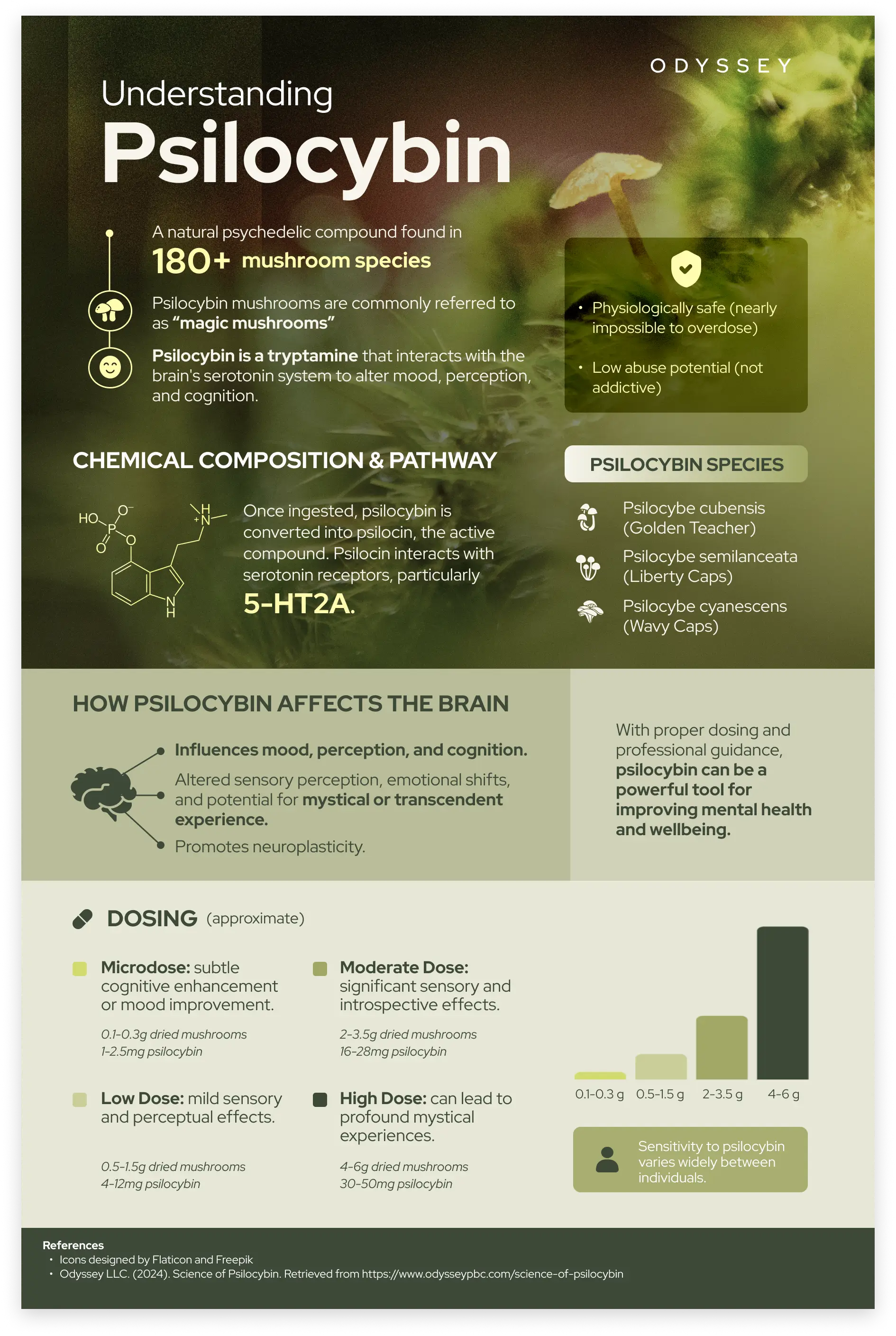
Join our newletter for first access to the best psilocybin services and retreats in Colorado.
Cannabis-Assisted Therapy
Cannabis-assisted therapy has gained traction as another alternative to ayahuasca retreats in Colorado. The Center for Medicinal Mindfulness, established in 2012 in Boulder, was among the first legal psychedelic plant medicine therapy clinics in North America. They pioneered innovative modalities called Cannabis-Assisted Psychedelic Therapy and Cannabis-Assisted Psychotherapy.
When used intentionally and skillfully, cannabis is reported to be as potent as other psychedelic medicines in therapeutic settings. Clients often report experiences that are as powerful as those induced by MDMA, ayahuasca, and even DMT. These sessions provide an opportunity for healing, regulating the nervous system, and learning healthier patterns.
Holotropic Breathwork
Holotropic breathwork offers a non-substance alternative for those seeking transformative experiences. Developed by psychiatrist Stanislav Grof and his wife Christina in the 1970s, this practice involves controlled breathing patterns to influence mental, emotional, and physical states. It aims to achieve altered states of consciousness without the use of substances.
During holotropic breathwork sessions, participants breathe rapidly and evenly to induce an altered state. While research on its therapeutic benefits for psychiatric conditions is limited, people report having experiences similar in intensity and effect to psychedelics.some evidence suggests it might be helpful for relaxation and stress relief.
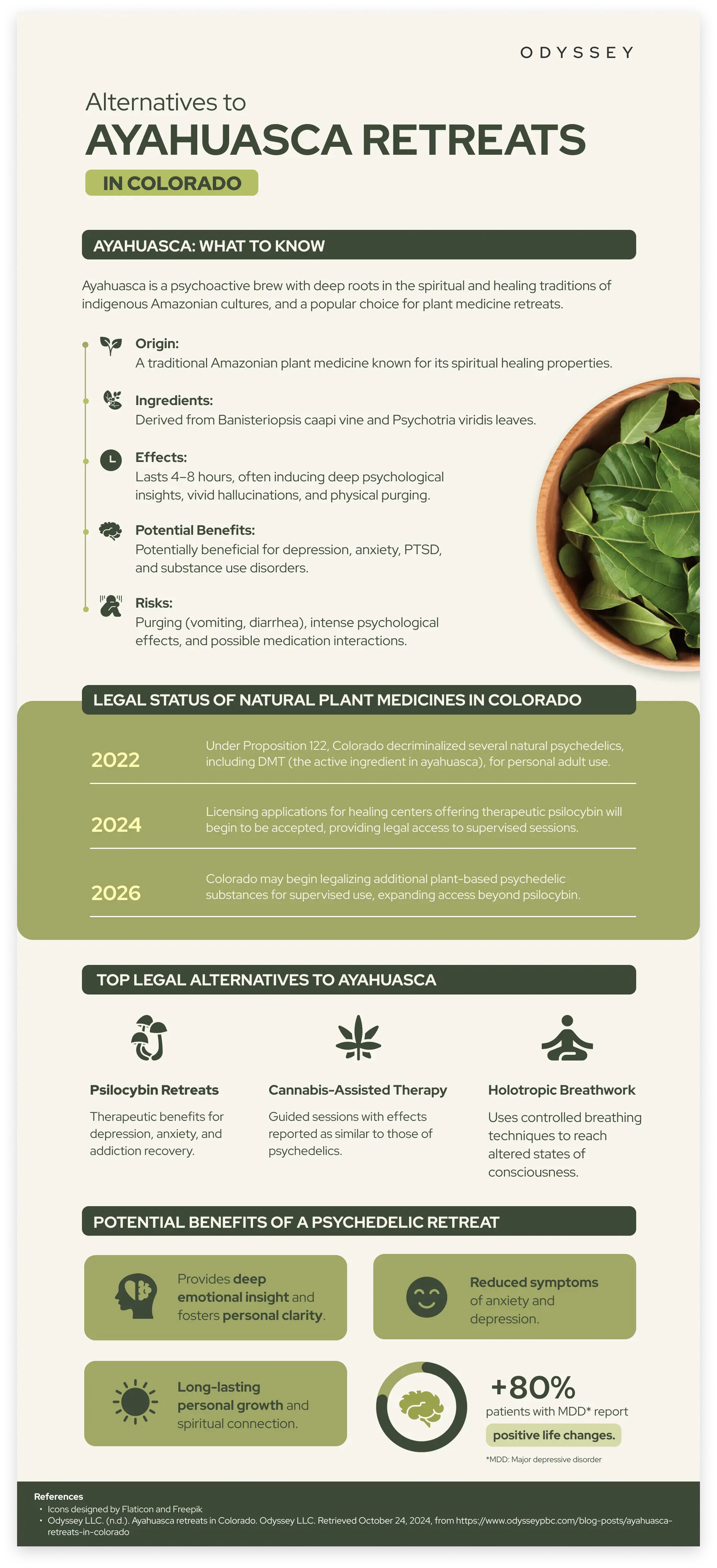
How to Choose the Right Psychedelic Experience for You
Factors to Consider
When selecting a psychedelic experience, individuals should carefully evaluate their personal goals, mental health history, and readiness for such a journey. It's crucial to understand that psychedelics can evoke powerful experiences, which may be confusing or challenging to process. Those with complex trauma histories may wish to consult with professionals or consider starting with basic mindfulness and nervous system stabilization practices before pursuing psychedelic work.
Preparation and Integration
Proper preparation is essential for a safe and meaningful psychedelic experience. This includes reducing stress and stimulating inputs in the days leading up to the journey, familiarizing oneself with the effects and duration of the chosen substance, and creating a safe, comfortable environment.
Integration, the process of making sense of and embodying insights gained during the experience, is equally important. This may involve journaling, engaging in creative activities, or seeking support from trained professionals. Licensed healing centers will have programs and systems in place to facilitate proper preparation, use, and support of the psychedelic substances. Odyssey’s program includes preparation and integration support. Make sure to choose a retreat where you feel secure and supported.
Safety Precautions
Safety is paramount when engaging with psychedelics. It's advisable to have a trusted sitter or guide present during the experience. Individuals with certain mental health conditions, such as schizophrenia or bipolar disorder, may exercise caution around psychedelic use due to potential risks. Colorado's recent regulations require facilitators to be at least 21 years old, have basic life-support training, and complete 190 hours of training in natural medicine. These measures aim to ensure the safety and well-being of participants in psychedelic sessions.

Conclusion
The landscape for psychedelic experiences in Colorado is evolving rapidly, offering a range of alternatives to traditional ayahuasca retreats. From psilocybin therapy to cannabis-assisted sessions and holotropic breathwork, individuals now have more options to explore altered states of consciousness and pursue personal growth and profound healing. These alternatives provide opportunities for healing and self-discovery while addressing legal and safety concerns that may be associated with ayahuasca use.
As Colorado continues to lead the way in psychedelic reform, it's crucial for individuals to approach these experiences with care and respect. Proper preparation, integration, and safety precautions are essential to ensure a beneficial journey. By considering personal goals, mental health history, and readiness, individuals can choose the right psychedelic experience to suit their needs, potentially opening doors to profound insights and lasting positive changes in their lives.
FAQs
Is ayahuasca legal in Colorado?
- Ayahuasca is not explicitly legal in Colorado, but its status is nuanced. While the active ingredient in ayahuasca, DMT, is a Schedule I controlled substance under federal law, the state of Colorado decriminalized the personal use, possession, and sharing of certain natural psychedelic substances, including DMT, in 2022 with the passage of Proposition 122. However, selling or distributing ayahuasca remains illegal, and there is no legal framework for operating ayahuasca retreats or ceremonies commercially. Some organizations can offer ayahuasca experiences through the Religious Freedom Restoration Act.
How do people change as a result of ayahuasca?
- Many people report profound and even life-changing effects after participating in ayahuasca ceremonies. Common experiences include emotional healing, a deeper understanding of oneself, improved mental health, and a greater sense of purpose or spirituality. Scientific studies have shown that ayahuasca may be able to help reduce symptoms of depression, anxiety, and PTSD. However, individual experiences vary, and the effects can depend on a person's intentions, mental state, and the setting of the ceremony.
What happens at an ayahuasca retreat center?
- At an ayahuasca retreat, participants typically engage in a guided ceremony led by experienced facilitators or shamans. Some are private sessions, like those offered by Odyssey, while others are in a group setting with a broader community. The ceremony involves drinking a brew made from the ayahuasca vine and other plants, which induces a psychedelic experience. These ceremonies often include rituals, music, and guided meditation to create a supportive environment. Participants may experience visions, emotional release, and introspection during the session, which can last several hours. Pre- and post-ceremony integration coaching sessions and other support services are common to help participants process their experiences.
Where is the home of ayahuasca?
- Ayahuasca has its origins in the Amazon rainforest, where it has been used for centuries by indigenous tribes in Peru, Brazil, Colombia, and Ecuador as a powerful plant medicine. These cultures have long traditions of using ayahuasca for spiritual healing, divination, and religious rituals. The Amazon remains the cultural and spiritual home of ayahuasca, although its use has spread globally in recent decades, with retreats and ceremonies now offered in many countries around the world, including the United States.

.svg)
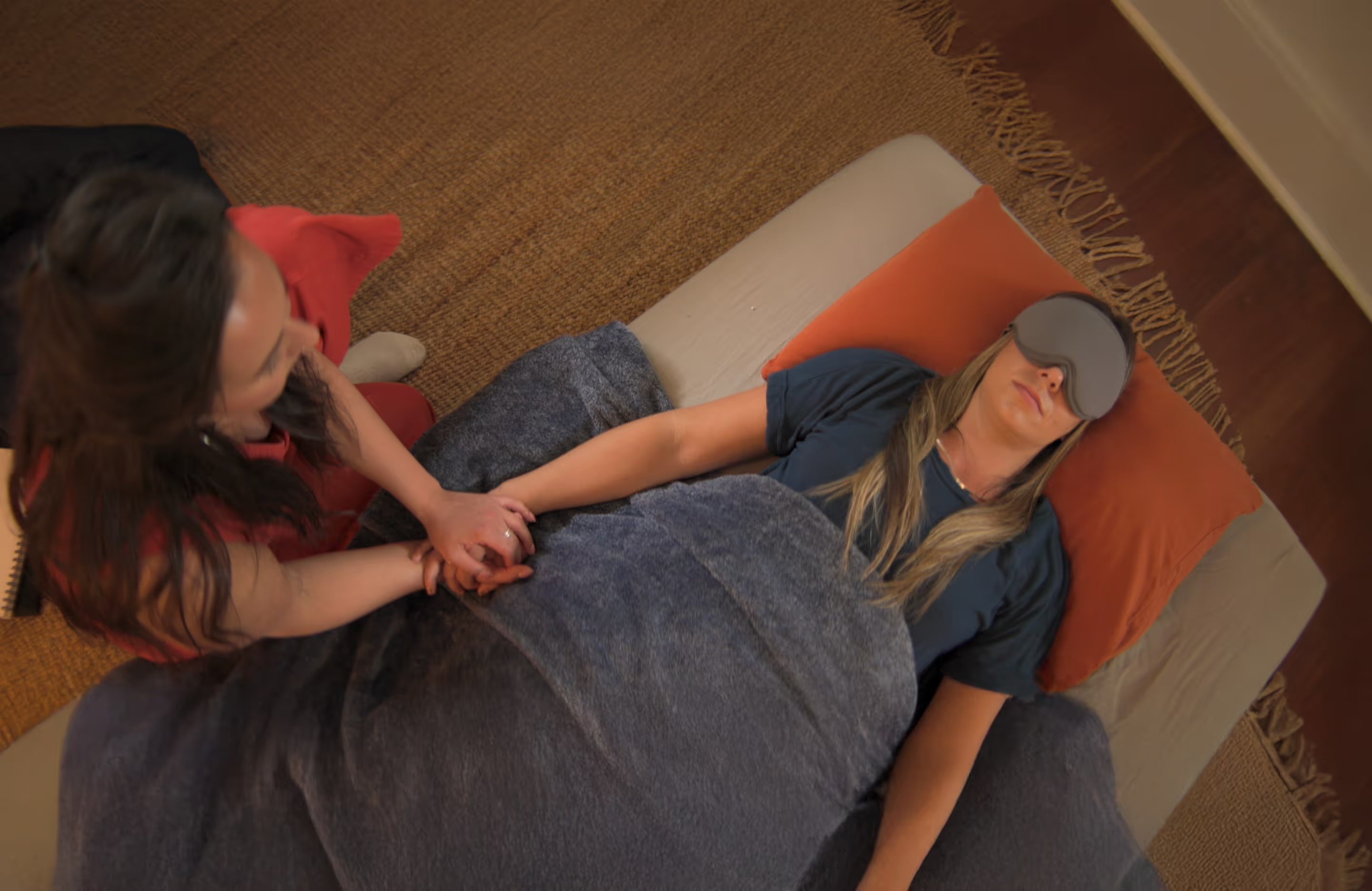



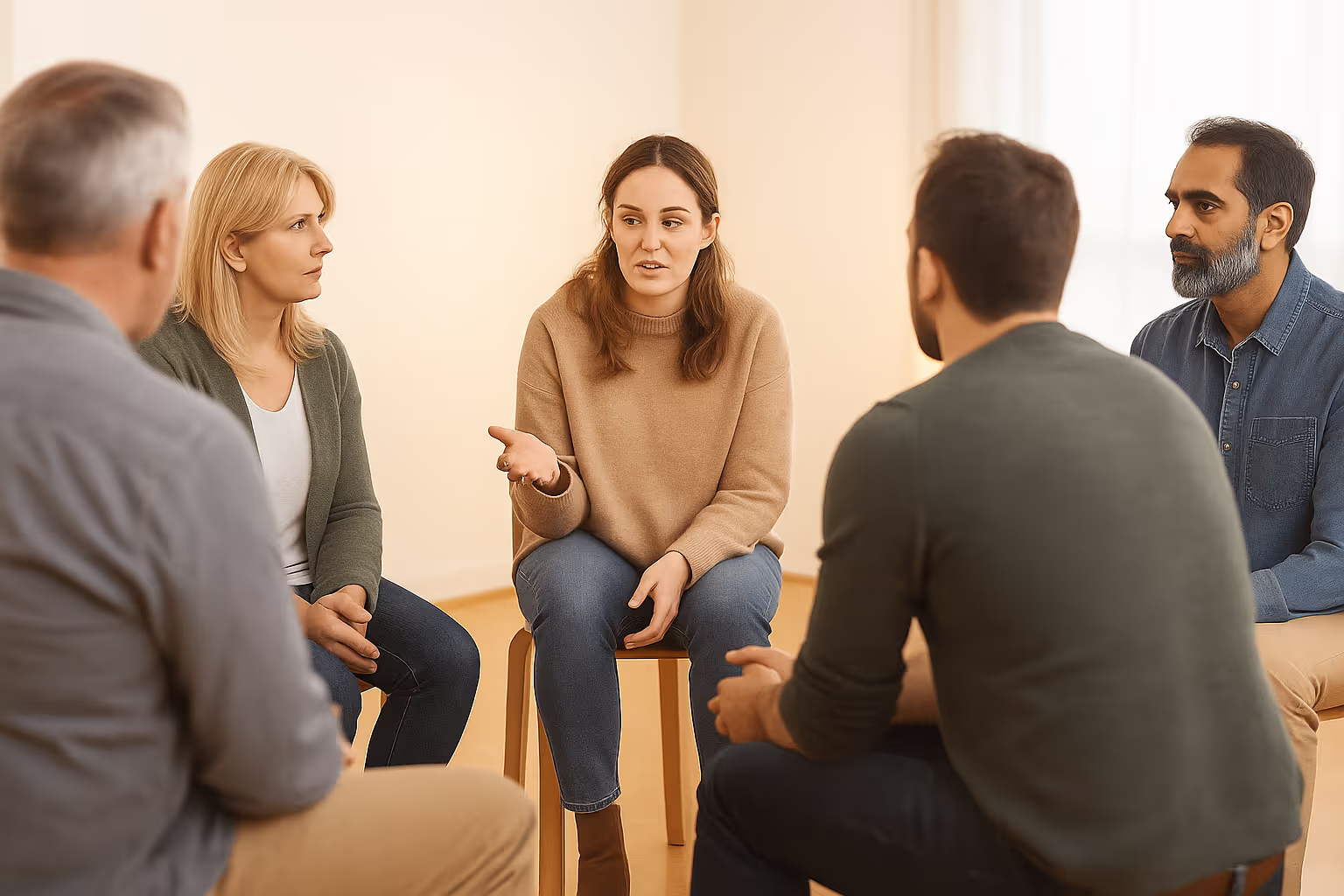
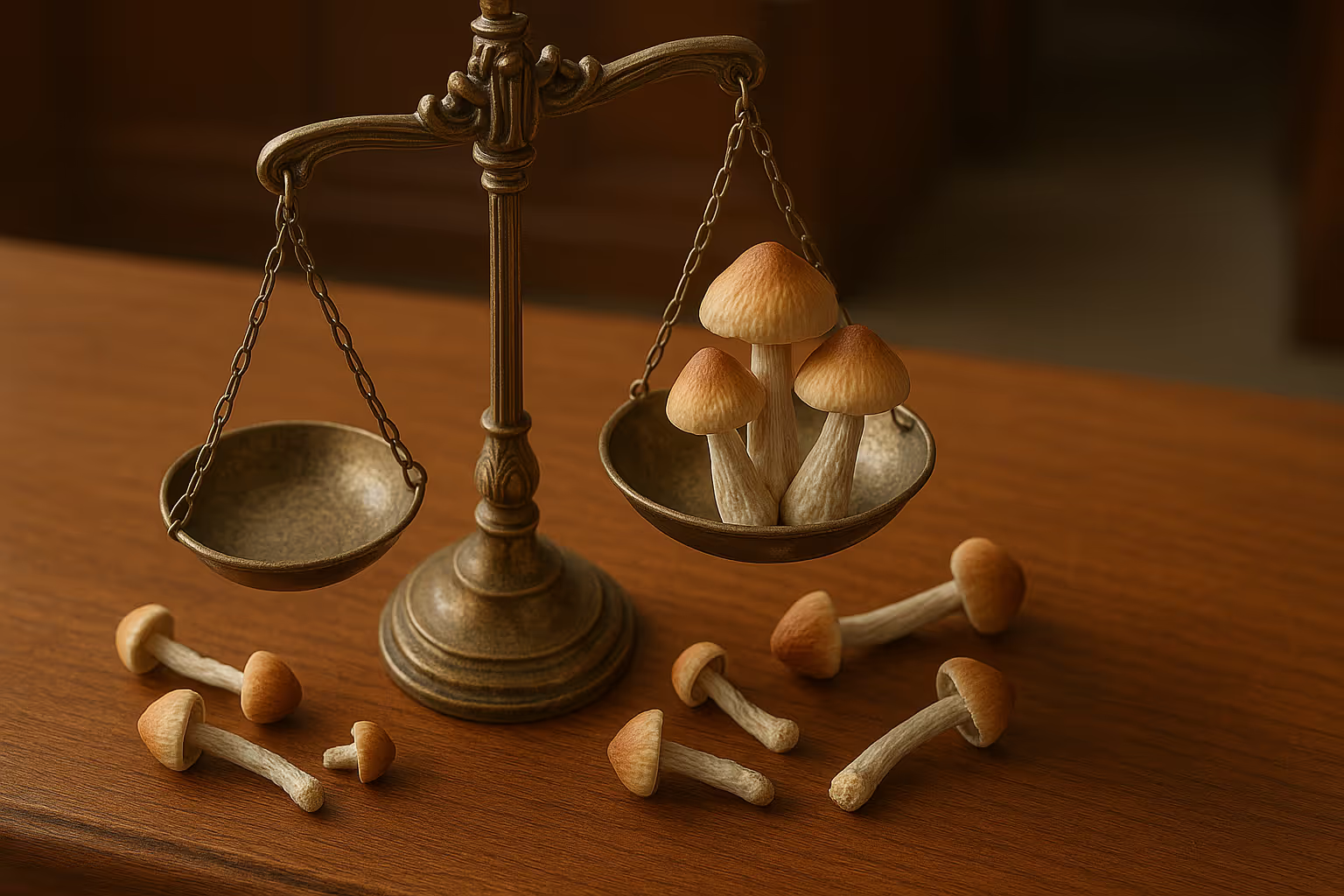



.svg)